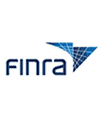As the popularity of hybrid debt-equity securities continues to grow due to their tax treatment and other factors, the Financial Industry Regulatory Authority (FINRA) plans to make sure that all the trades in these instruments are captured correctly.
On September 29, the regulator filed a notice in the US Federal Register to clarify reporting requirements and provide its members with a window to update the routing of their trade reports.
FINRA officials declined to comment on the proposed changes when contacted. However, the regulator has fielded several questions from the industry on which hybrid trades should be reported to FINRA’s over-the-counter trade reporting facility (ORF) and Trade Reporting and Compliance Engine (TRACE), according to the filing.
“One could argue that these clarifications are in the spirit of the Dodd-Frank Act, but I believe that FINRA identified some areas that needed clarification,” says David Weiss, a senior analyst at industry research firm Aite Group.
Under FINRA Rule 6622, members must report their transactions in OTC equities securities to the regulators OTC reporting facility (ORF). Similarly, FINRA Rule 6700 requires TRACE-eligible securities to be reported to its TRACE platform. Yet, some member firms have been reporting trades to the wrong trade reporting facilities.
If the US Securities and Exchange Commission (SEC) approves FINRA’s proposal, FINRA would classify trust-preferred securities (TruPS), also known as capital trust securities, as TRACE-eligible securities.
Members reporting trades in these instruments should report the percentage the trade’s par value and the transaction’s volume as the total transaction’s par value rather than the number of bonds traded to the TRACE platform as long as the instruments are not listed on a national securities exchange or an equity facility.
FINRA officials view this as a clarification rather than a change since the regulator’s predecessor, the National Association of Securities Dealers (NASD) required members to report TruPS and capital trust securities trades to its Fixed Income Pricing System (FIPS) before replacing it in July 2002 with TRACE, which inherited the previous platform’s reporting obligations.
Members trading other hybrid instruments like depositary shares, which represent a fractional interest in a share of preferred stock, that are not listed on a national securities exchange or an equity facility will need to report trades to FINRA’s ORF platform detailing the transaction’s pricing in dollars per share and its volume in the number of depositary shares traded.
Once the new interpretations go into effect, no later than 60 days following the SEC’s approval and before 90 days following the publication of the regulatory notice announcing the SEC’s approval, FINRA members will need to report all transactions to the appropriate trade reporting facility.
FINRA officials estimate that the proposed changes will not result in any undue burden on competition for its members since they already are required to report such transactions. Neither is the regulator looking to have its members cancel or correct trades already submitted to the reporting facilities.
“I cannot expect too many people getting terribly upset about this change, unless they have hard coded their TRACE reporting that now needs to go to the ORF,” says Weiss. “I would not be surprised if some counterparties bemoan that the regulators are killing them with reporting requirements, but they always say that.”
